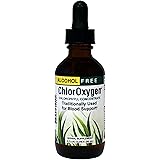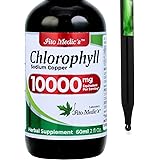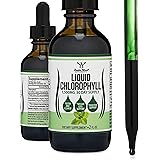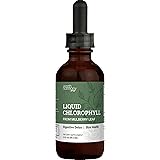Understanding the critical importance of a medically supervised alcohol detox is paramount for anyone considering stopping alcohol consumption after prolonged heavy use. As Prof. Jonathan Chick and Dr. Margaret McCann discuss in the video above, the process of withdrawing from alcohol can be profoundly serious, necessitating professional care to ensure safety and manage potentially life-threatening symptoms. This article will further illuminate the complexities of alcohol withdrawal and the meticulous approach taken in a professional medical setting to facilitate a safe and effective detoxification.
Why Medically Supervised Alcohol Detox is Essential for Safety
The human brain, particularly the nervous system, adapts significantly to the constant presence of alcohol, which acts as a depressant on its normal functions. When alcohol is suddenly removed, this delicate balance is abruptly disrupted, causing the brain to rebound into a state of severe hyperexcitability. Prof. Chick aptly compares this phenomenon to a spring under a heavy weight; once that weight is lifted, the spring becomes highly unstable and unpredictable. This neurological instability manifests as a range of uncomfortable and dangerous physical and psychological symptoms, highlighting the need for a professional alcohol detox.
Attempting to undergo alcohol withdrawal without medical supervision carries substantial risks, extending far beyond simple discomfort or inconvenience. The uncontrolled rebound of the nervous system can lead to severe complications that are not only intensely distressing but also potentially fatal. For instance, the danger of developing seizures or experiencing delirium tremens (DTs), a severe form of withdrawal marked by extreme confusion and agitation, is significantly high. Therefore, comprehensive medical oversight during alcohol detoxification is not merely a preference but a crucial necessity for safeguarding an individual’s health and well-being.
Understanding the Spectrum of Alcohol Withdrawal Symptoms
The symptoms associated with alcohol withdrawal can vary greatly in intensity and presentation, depending on factors such as the individual’s drinking history, overall health, and genetic predispositions. Initially, milder symptoms typically emerge within hours of the last drink, which can include tremors, intense anxiety, profuse sweating, nausea, and headaches. These early signs are often indicative of the body’s initial shock as it begins to adapt to the absence of alcohol in its system.
As the withdrawal progresses, especially without appropriate medical intervention, more severe symptoms can develop, posing significant threats to health. Prof. Chick specifically mentions the potential for epileptic seizures, which can occur suddenly and without warning, and disturbing hallucinations or delusions. These severe manifestations underscore the seriousness of unmanaged withdrawal and the critical importance of seeking professional assistance for an alcohol detox. Managing these symptoms effectively requires constant medical monitoring and precise administration of medication.
The Medical Process: Ensuring a Safe and Gradual Alcohol Detoxification
A structured and medically supervised alcohol detox program is designed to manage withdrawal symptoms safely and reduce the risk of severe complications. This process typically begins with a thorough medical assessment, where healthcare professionals evaluate the individual’s physical health, drinking patterns, and any co-occurring conditions. The goal is to create a personalized treatment plan that caters specifically to the individual’s unique needs, ensuring the highest level of care and comfort throughout the challenging withdrawal period.
Central to the medical management of alcohol withdrawal is the use of substitute sedative medications, such as chlordiazepoxide, often known by its brand name Librium, as highlighted by Dr. Margaret McCann. These medications work by mimicking some of alcohol’s calming effects on the central nervous system, helping to stabilize the brain and prevent the dangerous hyperexcitability that causes severe withdrawal symptoms. The dosage of these medications is meticulously adjusted based on the patient’s individual response, guided by regular monitoring and detailed checklists used by nursing staff to prevent both under-sedation and over-sedation.
During the initial phase of alcohol detox, which typically spans the first four or five days, patients are under close observation to track their progress and promptly address any emerging symptoms. The medical team’s expertise ensures that the medication is gradually tapered down over the course of approximately a week, allowing the body to safely adjust to functioning without alcohol. This gradual reduction is crucial for minimizing discomfort and preventing the sudden return of acute withdrawal symptoms, making the journey through detoxification as safe and supportive as possible for the individual.
Beyond Detox: Laying the Foundation for Lasting Recovery
It is crucial to understand that alcohol detox, while absolutely vital, represents only the initial step in the comprehensive journey toward long-term sobriety. This crucial first phase focuses on safely eliminating alcohol from the body and managing acute withdrawal symptoms under medical supervision. However, detoxification alone does not address the underlying psychological, emotional, and behavioral factors that contribute to alcohol dependence.
Following a successful detox, the next essential phase typically involves engaging in comprehensive rehabilitation and therapeutic interventions. These programs often include individual and group therapy, cognitive-behavioral therapy (CBT), motivational interviewing, and family counseling. These therapies equip individuals with coping mechanisms, address triggers, heal past traumas, and develop healthier lifestyle habits, all of which are fundamental for sustaining sobriety. The objective is to establish a robust foundation for enduring recovery, helping individuals build a life free from the grip of addiction beyond the initial stages of alcohol detoxification.
Choosing a reputable facility that offers a continuum of care, extending beyond just the acute detox period, is therefore paramount for anyone seeking to overcome alcohol addiction. Such centers provide not only expert medical care during the challenging withdrawal period but also offer the crucial therapeutic support needed for long-term recovery and well-being. Ensuring access to qualified medical professionals and a supportive environment greatly enhances the chances of achieving lasting sobriety following a medically managed alcohol detox.











